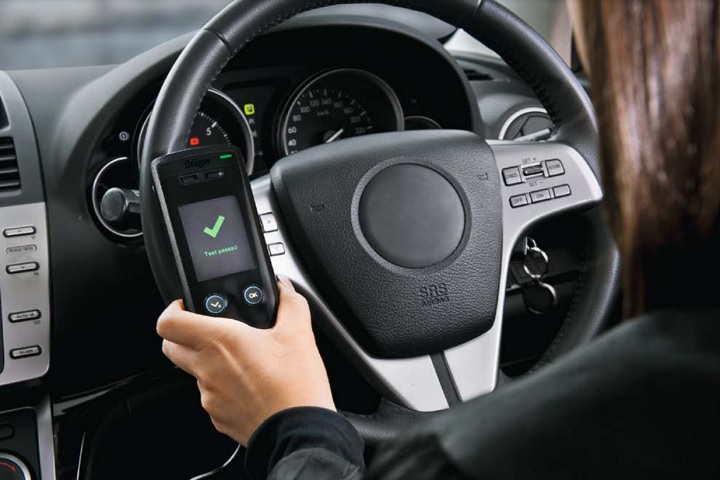
Giving courts the power to impose alcolocks for drink driving offenders would reduce the high level of reoffending and cut the number of alcohol related road deaths and injuries, according to a new report.
Alcolocks – also known as alcohol interlocks – require the driver to blow into a breath-testing instrument connected to the vehicle ignition system before the vehicle will start.
If the device detects alcohol over the limit, the vehicle will not start. The alcohol concentration level for the test is normally set close to zero.
The report – published by the Parliamentary Advisory Council for Transport Safety (PACTS) – looks at the use of alcohol interlocks around the world and finds that they are significantly more effective than licence disqualification at reducing reoffending.
Stats show that one in six drink driving offences is committed by a reoffender. The report notes that current reliance on media campaigns, penalties, driving bans and police enforcement is not enough to deter reoffending.
Nor is it enough to bring down the number of deaths from drink driving, which has not changed since 2010, the report adds.
The report recommends that the courts are given powers to offer or mandate alcohol interlocks for many drink drivers. The courts might reduce the period of licence disqualification for those offenders who agree to a device being fitted, it says.
However, the report notes this reduction in disqualification period should not apply to drivers convicted of a “causing harm” offence, such as causing death or serious injury by drink driving.
It also says offenders should be responsible for the costs of the interlock programme – typically around £1,000 a year – against estimated £70,000 possible costs for loss of job, legal fees, fines, increased insurance premiums and the cost of public transport from a drink drive conviction.
PACTS is calling on the Government to introduce alcolocks as soon as possible.
David Davies, executive director of PACTS, said: “We were shocked to find that one in six drink driving offences is committed by someone previously convicted.
“Since 2010, this amounts to over 100,000 offences – each of which is highly dangerous to the driver and other road users. Clearly the current system is not adequate.
“A number of other countries have introduced alcohol interlocks to prevent repeat drink driving and to bring down the number of deaths and injuries that result. Alcohol interlocks have proved highly effective.
“PACTS is calling on the Government to give UK courts the powers to impose them without delay.”
Comment on this story